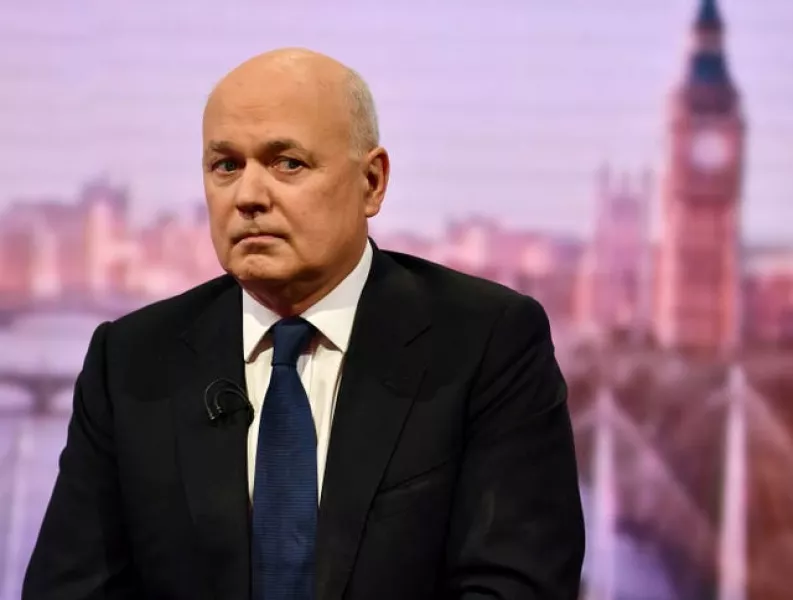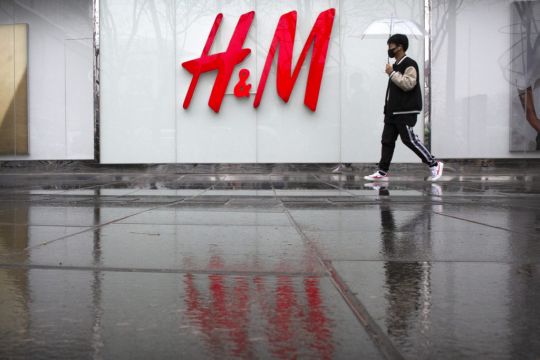China has announced sanctions on British officials and also targeted Swedish clothing retailer H&M in a spiralling dispute over complaints of abuses in the Xinjiang region.
A statement from the Chinese Foreign Ministry said a sanctions regime imposed earlier this week by the EU, the US, Britain and Canada was based on “nothing but lies and disinformation, flagrantly breaches international law and basic norms governing international relations, grossly interferes in China’s internal affairs, and severely undermines China-UK relations”.
Beijing sanctioned four British institutions and nine individuals, including prominent legislators who have criticised the treatment of the Uighur Muslim minority. It said they would be barred from visiting Chinese territory and banned from financial transactions with Chinese citizens and institutions.
“China does not stir up trouble, but China is not afraid when others do,” Yang Xiaoguang, China’s charge d’affaires in London, said at a news conference.
H&M products have been removed from major e-commerce platforms including Alibaba and JD.com following calls by state media for a boycott over the firm’s decision to stop buying cotton from Xinjiang. That damages H&M’s ability to reach customers in a country where more than a fifth of shopping is online.
Shockwaves spread to other brands as dozens of celebrities called off endorsement deals with Nike, Adidas, Burberry, Uniqlo and Lacoste after state media criticised the brands for expressing concern about Xinjiang.
Tencent, which operates games and the popular WeChat message service, announced it was removing Burberry-designed costumes from a popular mobile phone game.
H&M’s approximately 500 stores in China did not show up on ride-hailing app Didi Chuxing or map services operated by Alibaba and Baidu, and its smartphone app disappeared from app stores.
It was not clear whether companies received orders to erase H&M’s online presence, but Chinese enterprises are expected to fall in line without being told. Regulators have broad powers to punish companies that fail to support official policy.
The ruling Communist Party’s Youth League launched attacks on Wednesday on H&M following the European Union’s decision to join the US, Britain and Canada in imposing sanctions on Chinese officials blamed for abuses in Xinjiang.
On Friday, the Chinese government announced penalties against nine Britons and four institutions. They are banned from visiting China or having financial transactions with its citizens and institutions.

The nine Britons are former Conservative leader Iain Duncan Smith, Lord David Alton, Tory MPs Neil O’Brien, Tim Loughton and Nusrat Ghani, Labour’s Baroness Helena Kennedy, barrister Geoffrey Nice, academic Joanne Nicola Smith Finley, and the chairman of the Foreign Affairs Committee, Tom Tugendhat.
The four institutions are the China Research Group, the Conservative Party Human Rights Commission, Uyghur Tribunal and Essex Court Chambers.
More than a million members of the Uighur and other predominantly Muslim ethnic minorities have been confined to detention camps in Xinjiang, according to foreign governments and researchers. Authorities there are accused of imposing forced labour and coercive birth control measures.
The Chinese government rejects complaints of abuses and says the camps are for job training to support economic development and combat Islamic radicalism.
State media accused H&M and other brands of improperly profiting from China while criticising it. That prompted Chinese retailers and internet companies to distance themselves from the Swedish retailer, though other brands still were available on e-commerce platforms.
It was unclear why China targeted H&M, whose expressions of concern about Xinjiang have been similar to those of other companies, but its home country of Sweden might be seen by Chinese leaders as more susceptible to pressure due to its small size.







